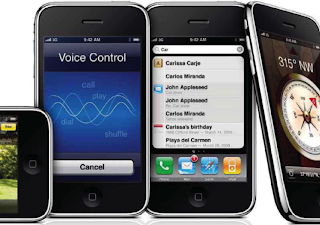Thursday, December 19, 2013
$840m win is not about the price tag, says Apple
Retrial increases previously reduced damages award against Samsung over iPhone design rip-off
Apple and Samsung faced each other in a US court in November in the latest instalment of a patent dispute in which Apple was awarded $1.05bn (about £642m) in August 2012.
That award was cut to $550m early in 2013 when Judge Lucy Koh, who had presided over the original trial, ruled that the jury had been wrong in its assessment of part of the damages award. She ordered a retrial to determine how much of the remaining $455m should be awarded.
Apple claimed it should get a further $380m, while Samsung reckoned $52m was appropriate.
The jury settled on $290m, bringing the total awarded to Apple in the case to $840m.
In a statement to tech news site AllThingsD, Apple said: ‘For [us], this case has always been about more than patents and money. It has been about innovation and the hard work that goes into inventing products that people love. While it’s impossible to put a price tag on those values, we are grateful to the jury for showing Samsung that copying has a cost.’
Jessie J had released no comment on the matter at the time of going to press.
The original trial focused on claims from both companies that each had infringed the other’s patents. The jury found Samsung had wilfully infringed Apple patents for software and hardware design, and was guilty of diluting the ‘trade dress’ of the iPhone by making its smartphones look and feel so much like Apple’s device that customers could be confused.
It also confirmed that Apple had infringed none of Samsung’s patents.
At stake was the look and feel of both the iPhone and iOS. The software patents in the case related to the user interface and the way users perform routine functions. These included the ‘bounce-back’ feature, also known as rubber-banding, which responds to the touchscreen user trying to scroll content past its end point by offering increasing resistance until the user lets go, at which point the content rebounds into place.
Samsung was also found to have infringed some of Apple’s patents relating to the design of the iPhone’s hardware, although the jury drew the line at Apple’s attempts to enforce a patent relating to the shape of the iPad, which some reports characterised as trying to claim to have invented the rounded rectangle.
Both sides can still appeal the judge’s ruling, but by early December neither had announced an intention to do so.
Apple hasn’t always been on the right side of patent infringement rulings in recent months. One dispute, with a company called VirnetX, is affecting the performance of FaceTime. At issue was the use of peer-to-peer technology for messaging applications. Accuit:.iiy t’.j Ars TeVnica. in a story sourced from a VirnetX investor, Apple originally routed almost all FaceTime calls directly between users. In other cases it used a relay server. Placing calls without a relay server was found to infringe routing all calls tnrough a relay, and this is why the maximum resolution currently transmitted is much lower than the FaceTime HD cameras in Apple products are capable of.
VirnetX claims Apple is spending $2.4m a month on this kludge - but it has a vested interest in inflating that figure, because the more it costs to use relay servers, the higher the royalty it can charge for the alternative method.
Subscribe to:
Post Comments (Atom)

No comments:
Post a Comment